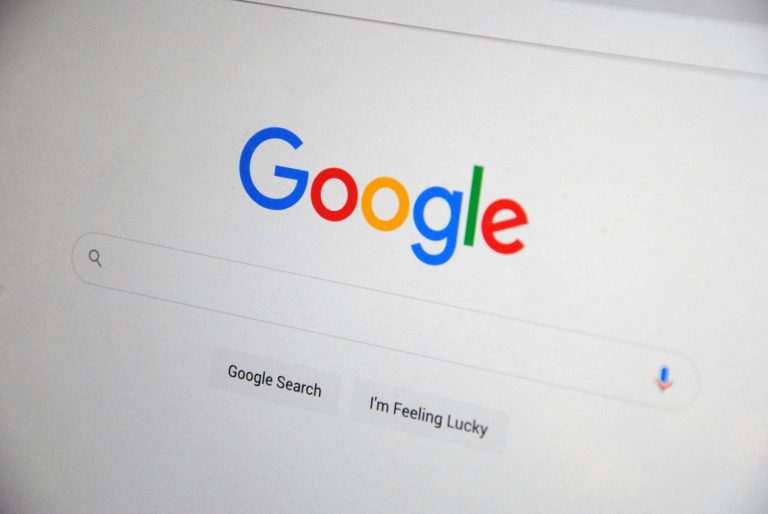
How to check for AI-generated content
Concerned that you’ve solicited human-written content but received an alternative by artificial intelligence (AI) instead? While Google doesn’t expressly penalise AI-generated content, it does value
Digital marketing is a way of making sure your business is seen and in a position to attract customers.
Even if your marketing strategy isn’t 100 per cent digital, it likely is – and probably should be – mostly using online channels.
Of course, digital marketing needs to be logical and planned. It’s no good just throwing things out when they’re ready and hoping they stick. You need a digital marketing strategy.
But what is a digital marketing strategy? Let’s start from the top.
Digital marketing is simply marketing that exists through online channels such as social media, videos, and email. The evolution of the internet and how we access it means digital marketing is constantly evolving alongside its own medium. It now reaches people not only through computers, but phones, tablets, and other devices.
Digital marketing contrasts to what we would now call traditional marketing – television and newspaper adverts, billboards, and the more ‘classic’ methods. However, traditional marketing has not necessarily been replaced, and there are still plenty of examples of its capacity to deliver results.
But with around 46.6 million people in the UK accessing the internet on a daily basis, who could argue against digital marketing being to be a priority for any business looking to amplify its brand?
Digital marketing still employs many paradigms that you would recognise from traditional marketing. For example, its objective is to attract the customer’s attention with eye-grabbing visuals, punchy wording, and strong calls to action that encourage an initial phone call or email.
It’s the medium that grants marketers new opportunities for creativity and disruption. Social media integration lets users create and send a tweet about their newest online purchase with the click of a button. Embedded videos allow adverts to play automatically upon entering a website, and follow the user’s screen as they scroll. And, as we well know, the fight to climb Google’s rankings with sound SEO is never ending.
Gone are the days when loud and obnoxious popups invade your device’s screen. Digital marketing – when refined and logicised with a sound strategy – has the potential to reach farther and wider than even you might have imagined.
Digital marketing strategy starts with planning. This plan will act as a guide while your marketing campaigns progress, providing metrics against which you can measure successes, challenges, and areas that might be venturing away from your initial expectations.
Your strategy should outline your goals: what do you want to achieve? What are the best channels to invest in? What combinations of these channels are you going to require?
These should be defined as much as possible, rather than being generic aims. For instance, let’s say you’re launching a new product, and you want it to sell at least X number of units. Your strategy might include an email marketing campaign, as well as social media changes to reflect this launch with graphics and scheduled posts.
A good strategy shouldn’t just spell out what you want to get; it should spell out what you want to do, and more importantly, how you’re going to do it.
You must also consider your target audience. Defining the ideal person to click on your links or read your blog posts will help you aim for those people and tailor your actions to their interests and values. Through this, you can hone your messaging.
As a final thought, you need to know and understand your KPIs. After all, the best strategy you’ve ever devised will be hard to measure if you don’t have a yardstick for what success looks like.
..
Business is competitive, and you cannot compete without a strategy.
It doesn’t matter whether you’re an author looking to publish a book, a chess player hoping to win a tournament, or a small business owner looking to become the best firm in Manchester – you need to have a plan.
Digital marketing might yield results ‘by accident’ if you just do things as they occur, but it won’t be anything close to what it could be when properly organised and refined. This could mean a lot of wasted money if you’re not seeing a return on investment, and you don’t want a business to fail in the act of trying to market itself.
Digital marketing is a somewhat loose term that encompasses a number of methods and techniques (some might even call them art forms).
The best strategies will combine multiple forms of marketing, but we’ll get to that a little later.
SEO refers to the practices of improving how a search engine ranks your website. Better ranking means higher on the results, and a place on page one – particularly the first five non-paid results – is the ultimate goal. SEO these days is overwhelmingly concerned with Google results, but with it maintaining a 92 per cent market share and processing what is thought to be in the realms of 5.6 billion searches per day, it really is no choice at all.
SEO is not an exact science, and with Google keeping its exact formulae secret in a constant state of change, it probably never will be. There are some certainties, however, worked out from years of trial and error and observing what Google publicly condemns.
Such actions have come to be known as ‘black hat’ SEO, referring to tactics that go against search engine guidelines and result in some hefty penalties from Google. These could include keyword stuffing, wherein pages are overloaded with certain keywords in an attempt to artificially push them higher up the search engine results page (SERP).
This contrasts with ‘white hat’ SEO: the good, ethical tactics of the type that we specialise in.
The most important aspects of good SEO include:
As mentioned earlier, Google changes its algorithms and metrics constantly, so part of SEO is always trying to keep up. Despite this, we can safely assume certain requirements of web pages. They will always need to be clean and readable, and people will always want to know they can trust what they’re reading.
The popular phrase ‘content is king’, originating from a 1996 essay by Microsoft founder Bill Gates, remains as true as ever today. Quality goes a long way. Speaking of which…
Content marketing is trying to do the same things as any other form of marketing, but it goes about it in a different way. The goal of content marketing is ultimately to form a cognitive link between business and user through high-quality, valuable content. It isn’t looking to ‘trick’ readers into becoming customers; rather, it offers a chance for businesses to show that they’re knowledgeable, trustworthy, quality-driven, perhaps even funny and entertaining.
A total of 91 per cent of consumers is reportedly ready to reward brands for their authenticity. Often, the best way to show that authenticity is to demonstrate an in-depth knowledge of your chosen field or to teach readers something new, offering them something for free that they can carry forward.
..
PPC marketing can be seen every time you perform a search on Google. The results that appear above the ‘true’ results – these days marked with an emboldened ‘Ad’ for transparency – are paid results. They can exist on many other platforms, and are a popular avenue of marketing to use alongside other methods.
PPC pays every time somebody clicks on the advert in question, though they can suffer due to internet users getting more savvy and tending to avoid advertising links. For instance, it’s thought that fewer than 10 per cent of users actually click on the paid ad results on Google.
Despite their location on the SERP, marketers aren’t talking about these ads when they refer to the top search results on Google, which we refer to as organic results. Although you can pay to get a ‘top’ result, organic traffic is always better in the long term.
PPC campaigns have a specific goal for each person that clicks on them. Completion of this is referred to as a conversion, and it may be as simple as signing up for a newsletter or leaving details for a call-back.
Social media marketing is straightforward and self-explanatory. It’s using the most popular social media platforms to spread brand awareness, share content, and generally be a mouthpiece for a brand.
4.62 billion people globally use social media. Despite this, in many ways, social media marketing can be a challenge to get right. Social media users can be easily disdainful at the sight of a brand trying to sell to them in a place where they go for peer-to-peer conversations.
Some of the most successful brands on social media are often not trying to directly sell anything in their approach to users. They join in, adopting the voice of their platform, using memes and pop culture references hoping to disarm those who are sceptical towards interacting with a brand.
Knowing the demographics of a platform’s users is vital to social media marketing. Users of TikTok are typically younger and more interested in finding amusing content than people who frequent Facebook or Instagram. If your brand’s voice doesn’t gel with users, it won’t be listened to.
Programmatic display advertising is an evolution of the banner ads that have always been so commonplace on the internet. Commonly seen on news sites and in apps, these adverts are capable of targeting users based on location, interests, demographics, and more.
Programmatic ads can be static or animated, and can even be made to look like pieces of editorial content to better integrate with the flow of the website. The ads are designed to be more relevant to readers and come from brands with which they’ve interacted or associated in the past. Hopefully, they’re also less intrusive.
The answer is yes! Digital marketing works.
Let’s imagine you’re optimising your SEO for Greater Manchester – that is to say, every time somebody searches Google for a business like yours in Manchester, you’re hoping to be up there on page one of the results, nice and visible.
If even just one per cent of the population of Greater Manchester sees your business as a result of optimised SEO and digital marketing, that’s at least 28,000 people.
That’s 28,000 chances for an impression, for them to remember your name or take a look at your services. Hopefully – ideally – they’d become customers.
Could you say the same of the impact from a billboard? Probably not…especially if people are too busy on their phone to look up and see it in the first place.
The fantastic thing about digital marketing is the extent to which the process can be overseen and monitored. Clicks on links can be counted and contrasted, allowing for A/B testing of your strategy and informing future marketing efforts at the same time. It’s a process that’s ideal for fine-tuning and improving, which is where it shines over traditional marketing in many ways. Once you’ve run an ad in the local paper, that’s it.
The team at Aqueous Digital are class-leading experts when it comes to digital marketing strategy.
Our first goal is to learn everything we can about you and your customers, understanding what you want to achieve and helping you visualise how we can achieve it together.
We can lend a hand, providing top-quality service with our open, trustworthy, and reliable team of writers, marketers, and SEO specialists.
We operate nationally and internationally, but if you are local to us in either Manchester, Merseyside or Cheshire , find out more about how we can help your SEO and help you build your digital marketing strategy, contact us today.
Content is King. What is content marketing?
Creating great content: How to write for SEO
How digital marketing has changed over the years
How video content can elevate your website
Top 20 Facts about Manchester You Never Knew
Aqueous Digital’s Ultimate Guide to the cost of SEO in the UK
Aqueous Digital’s Guide to the Top 501 SEO and Digital Marketing Terms

Concerned that you’ve solicited human-written content but received an alternative by artificial intelligence (AI) instead? While Google doesn’t expressly penalise AI-generated content, it does value

At Aqueous Digital, we’ve long maintained the belief that the concept of reviewing companies is flawed, having a significant effect on the success of businesses

Searching for different ways to connect with your target audience? With curated content, you can engage key demographics that are vital for the success of

Taking no less than two weeks to complete, Google’s first core update of the year has now finished rolling out, as reported by Search Engine

It’s no secret that ever since the early 2000’s, Google has been the go-to search engine for online users across the world, but with AI

Struggling to determine how much money your construction business should be dedicating to your marketing efforts? As award-winning digital marketing experts, the Aqueous Digital team